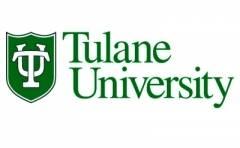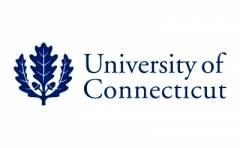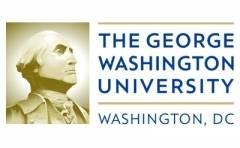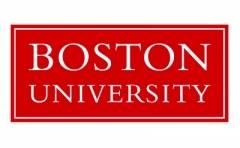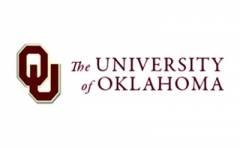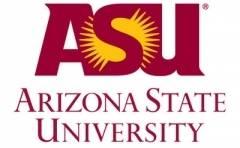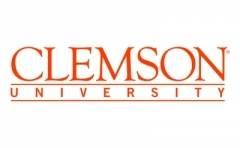Best Marketing colleges in the U.S. 2026
Businesses rely on marketing specialists to deliver tactful and effective communications to their constituents, clients, partners, and investors. For an organization to succeed, it needs to make people aware of its products or services. Marketing specialists craft meaningful messages to be displayed for advertising purposes so that their company or brand remains relevant in relation to their competitors.
Completing a degree in marketing provides graduates with tangible skills that they can put to use in the workplace immediately, and with the proliferation of internet-based marketing, many working professionals have the option of working remotely while managing their employer's social media and web-based marketing tools.
For their talents, marketing majors often fare very well in terms of salary. Marketing managers earned a median salary of $141,490 in 2020, according to the Bureau of Labor Statistics. Job prospects look promising too as companies continue to implement measures to stand out in the increasingly crowded global marketplace. The BLS projects overall employment of marketing managers to grow 10 percent between 2020 and 2030.
Click Here to See the Best Colleges in the US
Best Marketing colleges in the U.S. for 2026
Tulane offers its marketing degree through the well-known Freeman School of Business. Here are the basic, fundamental courses offered, though there are also a variety of electives tailored to student interest:
- Research and analytics
- Advanced marketing strategy
- Sales management
- Social and online marketing
- Consumer behavior
Here you’ll learn what’s involved in marketing new products. You’ll also learn how to identify key constituencies and how to use those relationships to promote a brand. Some students opt to study abroad and take classes under Freeman-affiliated faculty in order to immerse themselves in international marketing. Others prefer staying in the U.S. where Freeman’s Career Management Center can help you find real-world internships near the New Orleans campus and beyond.
Now don’t let the price tag of this private university scare you away from applying. Extensive merit-based and need-based scholarship programs result in Tulane paying on average 40 percent of the actual cost of tuition and fees for each student.
Ask marketing majors at UConn to name the department’s greatest strength and, you’re sure to hear “the faculty” as one of the most common responses. Instructors at this public research university are known internationally for expertise in digital marketing and analytics, consumer decision making, branding, marketing strategy, and cross-cultural consumer behavior.
UConn Business School grads have their share of accomplishments, too. An impressive 94% of business undergrads from the class of 2020 found employment by December, and those with a marketing degree started with a median base pay of $53,500.

Situated in Washington, D.C., a city with more than 1,000 internationally owned companies (many under a mile from campus), GW School of Business is another institution that takes full advantage of its location for internships and other learning opportunities. The business school itself was founded nearly a century ago on the new-for-its-time idea that business and government might become partners in promoting national prosperity and international development.
Today, GW offers a Bachelor of Science in Marketing, a Bachelor of Science in Business with a concentration in marketing strategy and analytics, a Graduate Certificate in Digital Marketing and Analytics, and a Graduate Certificate in Marketing and Brand Management. And despite being the largest institution of higher learning in our nation’s capital, more than half of GW’s undergraduate classes have fewer than 20 students.
Studying marketing through BU’s Questrom School of Business involves commitment to an interdisciplinary approach. The program uses insights and methods from psychology, anthropology, economics, and computer science to understand and predict consumer behavior. The university is so confident in its method that it claims “by the end of freshman year, you’ll know more than most juniors in other programs.”
Outside of class, 450+ student organizations make BU a hopping place. Intramural and club sports alone attract more than 7,000 participants. And with its location in the heart of Boston, there’s plenty more to explore beyond campus.
As legend has it, when OU’s first president stepped off the train in Norman in 1892 and saw the barren expanse of prairie, his only remark was “What possibilities!” Indeed, Norman today is a lively college town centered around OU and its 170+ academic programs, active Greek system, and plenty of Big 12 athletic competitions.
The Michael F. Price College of Business offers aspiring marketing professionals the opportunity to earn a Bachelor of Business Administration degree through its Division of Marketing and Supply Chain Management. The program puts a strong emphasis on marketing in the global economy, and some students choose to spend a semester in the university’s Study in Italy program. For students who wish to continue honing their marketing skills, OU conducts doctoral studies in marketing.
Undergrads at this private institution choose from one of three concentrations: digital marketing, standard marketing, or sales leadership. Whichever you select, a plethora of nearby internship possibilities await. DePaul’s location in the heart of downtown Chicago should not be wasted!
Are you a particularly ambitious marketing major? DePaul’s honors sequence, known as Integrated Marketing Education, provides a select group of students with a hands-on opportunity to develop skills in marketing management. The year-long program involves working with different area businesses each quarter to address real-life marketing issues. Participants leave with practical knowledge, many connections, and a portfolio of consulting projects to show prospective employers.
University of South Florida offers 1 Marketing, Other degree programs. It's a very large, public, four-year university in a large city. In 2023, 14 Marketing, Other students graduated with students earning 14 Bachelor's degrees.

If the prospect of studying at one of the largest educational institutions in the U.S. excites you, vibrant ASU could be your dream place. The internationally known W.P. Carey School of Business alone enrolls more than 16,000 students from over 100 countries. And with 100,000+ Carey alumni worldwide, networking opportunities abound when you’re ready to start your marketing career.
If heading to perpetually sunny Tempe isn’t your thing, consider earning a Bachelor of Science in Marketing through ASU Online. The 100% remote program features a mixture of general education requirements and marketing courses for a total of 120 credit hours. ASU is known for its innovation in online education and for substantial bang for the buck. You can even join more than 35 extracurricular clubs to build a sense of community with other remote Sun Devils.
Through the Wilbur O. and Ann Powers College of Business, Clemson offers a Bachelor of Science in Marketing and a Master of Science in Marketing. Both programs put a premium on immersive educational experiences inside and outside of the classroom. A highlight for many undergrads is Maymester in New York City, which provides interaction with industry professionals in the Big Apple.
Clemson itself is a pretty exciting place, too. Every Friday, everyone on campus displays their school spirit by wearing orange. Weekends bring many students and alumni together to support the Division I Clemson Tigers. Others head to the Brooks Center for Performing Arts or create their own outdoor adventure at Lake Hartwell. While roughly half of the students at this public institution are South Carolina residents, there’s too much to do to think about heading home!
Benedictine University offers 1 Marketing, Other degree programs. It's a small, private not-for-profit, four-year university in a large suburb.
Find local colleges with Marketing majors in the U.S.
What is Marketing?
Marketing is getting your name out there – letting customers know all about your products or services. It is an essential aspect of most industries and can be applied across different sectors including the automotive, healthcare, pharmaceutical, and entertainment industries.This involves building a brand that conveys who you are, what you do, how you’re different from competitors, and why someone should pay attention.
Since organizations typically have a limited amount of money for marketing, it’s best to hire trained marketing professionals to find the most effective marketing channels. Marketers think about who to target, which mediums to use, and what will drive sales.
The best marketing schools realize the complexities of today’s buying and selling environment. They continue to draw from disciplines such as psychology, sociology, and economics to teach about human behavior and influences on spending. They also develop expertise in modern marketing tactics such as search engine optimization (SEO), social media, and data analysis.
Students pursuing a degree in marketing often take courses about advertising techniques, branding tools, and business development strategies to gain a holistic perspective. There are plenty of online options for applicants interested in maintaining a flexible work schedule without sacrificing important learning opportunities. Depending on how quickly one would like to enter the workforce, there are options that range from two years associate programs to six-year graduate-level degree programs.
Marketing Degree Overview
Because marketing encompasses so many different aspects of business, students sometimes choose to concentrate on certain marketing specializations. A few of the many different types of marketing niches include:
- Advertising – drawing attention to your brand through crafted messages in chosen mediums
- Public relations – defining your brand and building a good rapport with potential customers
- Market research – studying consumer behavior and collecting data to make educated marketing decisions
- Marketing management – crafting a marketing plan and overseeing the different elements necessary for implementation
- Sales – examining what actions lead to actual purchases
- Digital marketing – using online technology and platforms for marketing purposes
- Luxury marketing – developing interest in expensive, high-end products or services
- Sports marketing – promoting athletic teams and events
- Global retail marketing – focusing on consumers in other countries
- Pharmaceutical and healthcare marketing – creating awareness of different drug and treatment plans among practitioners and consumers
- Food marketing – understanding how people choose what they eat
- Entertainment marketing – generating buzz for movies, TV shows, celebrities, or special events
- Nonprofits – using marketing tactics to draw attention to a mission or cause
Associate Degree in Marketing
The first and shortest path to a degree is by applying for an online associate program, which typically is completed in two years. Students enrolled in these programs often take foundational classes, such as foundations of marketing, advertising, and communications to name a few.
For online programs, asynchronous lectures and testing can give students added flexibility and may allow them to work while they finish their degree.
Bachelor's Degree in Marketing
The next step for prospective applicants interested in furthering their education with an online degree can look towards bachelor’s programs in marketing and advertising. These programs typically last up to four years and include marketing-specific and general education requirements. Since course loads can vary, students often choose how many credits they wish to manage in a given semester. Getting an online degree in marketing allows students to balance furthering their education with managing their daily lives.
Master's Degree in Marketing
Many working adults elect to take an online master’s program to increase their earnings and land the job of their dreams. Graduating with a Master’s in Marketing often requires students to develop a capstone project that pairs students with faculty members in their department to allow for mentorship and collaboration. In addition to the added academic experience, master’s programs provide job placement services that can connect upcoming graduates with salaried marketing and advertising roles.
Doctoral Degree in Marketing
Online doctoral programs in marketing typically last up to six years and beyond depending on how much academic research prospective students seek. Graduate students will often hold roles within their departments and work for faculty members who have funded research budgets.
In order to graduate, PhD students will complete a dissertation as a culminating final project before entering the workplace. Given the level of specialization that comes with a particular marketing PhD program, it is wise to know how academic work transfers to professional roles in the workplace.
Certification and Licensure in Marketing
Taking a certification or licensure exam can give working professionals a competitive edge when applying to jobs and further their knowledge of the given industry they operate in. For marketing professionals interested in industry-specific certificates, getting a Google Analytics IQ Certification or a HubSpot Content Marketing Certification could be a great start.
What Can I Do with a Degree in Marketing?
Graduates with a degree in marketing can explore a wide variety of sectors, as most businesses require some level of marketing and advertising to stay relevant in the marketplace. According to the Bureau of Labor and Statistics, Public Relations Specialists gross an average of $62,810 annually, while Marketing Managers receive up to $140,000.
Earning an Online Marketing Degree
Getting an online marketing degree as opposed to an in-person education has its advantages and disadvantages. Due to the digital nature of marketing in the 21st century, much of the content that is covered during in-person lectures can be more easily accessed online for people who have full-time jobs. While personal interactions can be critical for many working adults who intend on moving up professionally, important marketing skills and sector-specific knowledge can be learned online.
Marketing FAQ
List of all Marketing colleges in the U.S.
| School | Average Tuition | Student Teacher Ratio | Enrolled Students | |
|---|---|---|---|---|

|
Tulane University of Louisiana New Orleans, LA | 14 : 1 | 13,078 | |

|
University of Maryland-College Park College Park, MD | 21 : 1 | 40,813 | |

|
University of Connecticut Storrs, CT | 16 : 1 | 27,364 | |

|
George Washington University Washington, DC | 23 : 1 | 25,568 | |

|
Boston University Boston, MA | 19 : 1 | 36,624 | |

